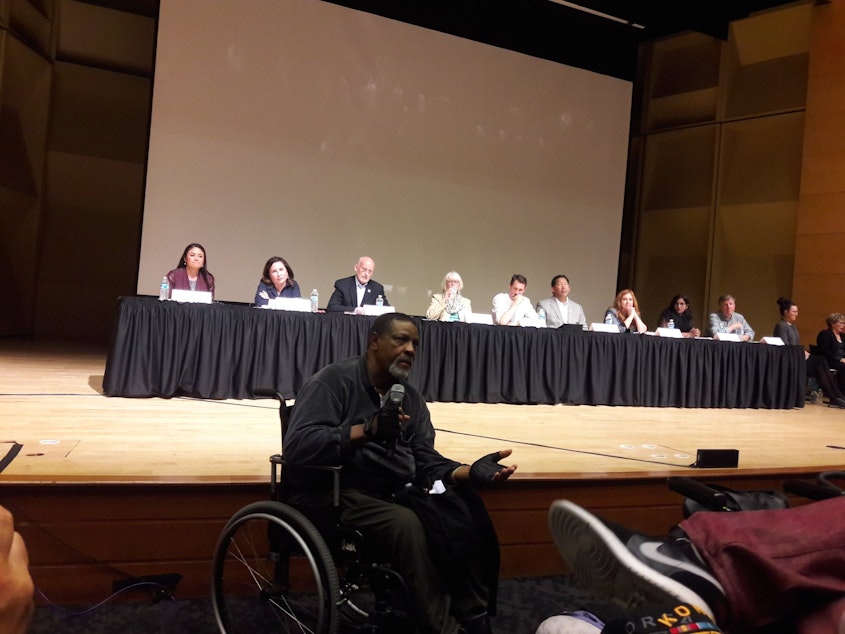‘Why no Taser?’ and other questions at Charleena Lyles forum

"We elected you. And you're going to do something this time."
That was one message to City Council members Tuesday night at a public forum on the shooting of Charleena Lyles.
A crowd packed the University of Washington's Kane Hall to vent anger, grief and frustration over the death of Lyles, who was shot by two police officers in her Magnuson Park apartment June 18.
The shooting has raised questions about racial bias and how police handle the mentally ill. Lyles was African American. The two officers, who say Lyles attacked them with a knife, were white.
City Councilmember Lorena Gonzalez convened the event after requests from Lyles’ family and the NAACP. Police Chief Kathleen O’Toole was invited but told Councilmember Kshama Sawant in an email that she would not attend out of respect for the family and the investigation.
Sponsored
“As we are barely over a week into an investigation that typically takes upwards of 90 days, I see absolutely no benefit to airing those private, difficult, and heartfelt conversations in a public, or worse, political forum,” O’Toole wrote.
Instead, the nine City Council members were onstage as people spoke, shouted and even sang about the impact of Lyles' death.
Lyles' father, Charles Lyles, came to Seattle from California for the event.
“She died on Father’s Day, that’s the worst part about it,” he said. "Every Father's Day, I'll think of that."
He said his daughter’s four children have been split up into different households, but the two older children saw the young ones recently.
Sponsored
"Before they could even say, 'Hi, grandpa,' they ran and grabbed those two little kids," he said. "It’s just so sad that their mother’s gone and they are separated.”
At one point he asked people in the crowd to be respectful.
Speakers asked why non-lethal force wasn't used to stop Charleena Lyles. One officer had been issued a Taser but wasn't carrying it. He said his Taser had run out of batteries months before, and that it was uncomfortable to carry on his body because he is thin.
Sponsored
Lhorna Murray lived in the same building as Lyles, at the Brettler Family Place housing at Sand Point.
“But for the fact that he left his Taser in his locker, I would be able to be yelling at Charleena tomorrow and telling her kids to stay away from my car with their bikes," Murray said. "But instead four children don’t have their mother.”
In transcripts of police interviews, the officers said they felt they had no option but to shoot.
Sponsored
Longtime activist Reverend Harriett Walden founded the group Mothers for Police Accountability and is a member of Seattle’s Community Police Commission, which worked to pass recent legislation for stronger police oversight.
She seemed to despair that her efforts to promote crisis intervention training and less lethal measures for police officers are still not bearing fruit.
“Twenty years! Twenty years we have worked for less lethal. Twenty years," she said. "And this system failed Miss Lyles? I’m outraged.”

